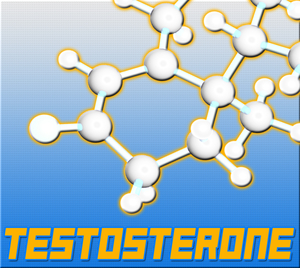Introduction
Testosterone, the primary male sex hormone, plays a crucial role in various physiological processes, including the maintenance of muscle mass, bone density, and overall metabolic health. Recent studies have begun to explore the association between low testosterone levels and an increased risk of heart disease among American men. This article delves into the current understanding of this relationship, highlighting the implications for men's health and the potential avenues for intervention.
The Prevalence of Low Testosterone
Low testosterone, or hypogonadism, is a condition that affects a significant number of American men, particularly as they age. It is estimated that approximately 40% of men over the age of 45 have low testosterone levels. This condition can manifest through symptoms such as decreased libido, fatigue, and reduced muscle mass, which can significantly impact quality of life.
Understanding the Connection to Heart Disease
Emerging research has suggested a potential link between low testosterone and an increased risk of cardiovascular diseases, including coronary artery disease and heart failure. Studies have shown that men with lower testosterone levels tend to have higher levels of visceral fat, which is a known risk factor for heart disease. Additionally, low testosterone has been associated with adverse changes in lipid profiles, such as increased levels of LDL (bad) cholesterol and decreased levels of HDL (good) cholesterol.
Mechanisms of Action
The mechanisms through which low testosterone may contribute to heart disease are multifaceted. One proposed pathway involves the impact of testosterone on endothelial function. Testosterone is believed to promote the production of nitric oxide, a molecule essential for maintaining the health of blood vessels. When testosterone levels are low, the production of nitric oxide may be compromised, leading to endothelial dysfunction and increased risk of atherosclerosis.
Another mechanism involves the influence of testosterone on insulin sensitivity. Low testosterone levels have been linked to insulin resistance, a precursor to type 2 diabetes, which is a significant risk factor for cardiovascular disease. By improving insulin sensitivity, testosterone may help mitigate the risk of heart disease.
Clinical Implications and Management
Given the potential link between low testosterone and heart disease, it is crucial for healthcare providers to consider testosterone levels when assessing cardiovascular risk in men. Routine screening for low testosterone, particularly in men with symptoms or those at higher risk for heart disease, may be beneficial.
For men diagnosed with low testosterone, testosterone replacement therapy (TRT) may be an option. However, the use of TRT in men with heart disease remains controversial, as some studies have suggested a potential increase in cardiovascular events with TRT. Therefore, a thorough evaluation of the risks and benefits is essential before initiating therapy.
Lifestyle Interventions
In addition to medical interventions, lifestyle modifications can play a significant role in managing low testosterone and reducing the risk of heart disease. Regular exercise, particularly resistance training, has been shown to increase testosterone levels and improve cardiovascular health. A balanced diet rich in nutrients, such as zinc and vitamin D, which are essential for testosterone production, can also be beneficial.
Conclusion
The relationship between low testosterone and heart disease in American men is a complex and evolving area of research. While the evidence suggests a potential link, further studies are needed to fully understand the mechanisms and to determine the most effective interventions. In the meantime, men should be aware of the symptoms of low testosterone and discuss any concerns with their healthcare provider. By addressing low testosterone and adopting a heart-healthy lifestyle, men can take proactive steps to protect their cardiovascular health.
Contact Us Today For A Free Consultation

- Environmental Toxins and Testosterone: Impacts and Mitigation Strategies for American Men [Last Updated On: March 9th, 2025] [Originally Added On: March 9th, 2025]
- Low Testosterone in American Males: Symptoms, Causes, and Treatment Options [Last Updated On: March 16th, 2025] [Originally Added On: March 16th, 2025]
- Low Testosterone's Impact on Muscle Mass and Strength in American Males [Last Updated On: March 16th, 2025] [Originally Added On: March 16th, 2025]
- Vitamin D's Role in Managing Low Testosterone in American Men: A Comprehensive Review [Last Updated On: March 16th, 2025] [Originally Added On: March 16th, 2025]
- Chronic Illness Impact on Low Testosterone in American Males: Management Strategies [Last Updated On: March 18th, 2025] [Originally Added On: March 18th, 2025]
- Managing Low Testosterone in Aging Men: Symptoms, Treatments, and Lifestyle Strategies [Last Updated On: March 18th, 2025] [Originally Added On: March 18th, 2025]
- Economic Burden of Low Testosterone on American Healthcare System [Last Updated On: March 19th, 2025] [Originally Added On: March 19th, 2025]
- Low Testosterone and Diabetes: Dual Challenges Impacting American Men's Health [Last Updated On: March 19th, 2025] [Originally Added On: March 19th, 2025]
- Alcohol Consumption and Its Impact on Testosterone Levels in American Men [Last Updated On: March 19th, 2025] [Originally Added On: March 19th, 2025]
- Zinc's Role in Boosting Testosterone Levels in American Men: A Comprehensive Review [Last Updated On: March 20th, 2025] [Originally Added On: March 20th, 2025]
- Low Testosterone and Mood Disorders: Impact and Management in American Men [Last Updated On: March 21st, 2025] [Originally Added On: March 21st, 2025]
- Low Testosterone in American Men: Symptoms, Diagnosis, and Treatment Strategies [Last Updated On: March 21st, 2025] [Originally Added On: March 21st, 2025]
- Smoking's Impact on Testosterone Levels in American Men: Risks and Recovery [Last Updated On: March 21st, 2025] [Originally Added On: March 21st, 2025]
- Low Testosterone's Impact on Osteoporosis Risk in American Men: Detection and Management [Last Updated On: March 22nd, 2025] [Originally Added On: March 22nd, 2025]
- Low Testosterone and Prostate Health: Risks, Therapy, and Management Strategies [Last Updated On: March 22nd, 2025] [Originally Added On: March 22nd, 2025]
- Low Testosterone and Hair Loss: Understanding the Link and Management Strategies [Last Updated On: March 22nd, 2025] [Originally Added On: March 22nd, 2025]
- Low Testosterone's Impact on Cognitive Function in American Men: Insights and Interventions [Last Updated On: March 22nd, 2025] [Originally Added On: March 22nd, 2025]
- Shift Work's Impact on Testosterone Levels in American Men: Health Implications and Mitigation [Last Updated On: March 22nd, 2025] [Originally Added On: March 22nd, 2025]
- Low Testosterone's Impact on Immune Health in American Males: Insights and Management [Last Updated On: March 23rd, 2025] [Originally Added On: March 23rd, 2025]
- Optimizing Testosterone Levels: Dietary Strategies for American Men [Last Updated On: March 23rd, 2025] [Originally Added On: March 23rd, 2025]
- Low Testosterone in American Men: Symptoms, Impact, and Treatment Options [Last Updated On: March 23rd, 2025] [Originally Added On: March 23rd, 2025]
- Environmental Estrogens: A Hidden Cause of Low Testosterone in American Males [Last Updated On: March 23rd, 2025] [Originally Added On: March 23rd, 2025]
- Low Testosterone's Impact on Skin Health in American Men: Causes and Management [Last Updated On: March 24th, 2025] [Originally Added On: March 24th, 2025]
- Weight Loss Boosts Testosterone: A Guide for American Males with Low T [Last Updated On: March 24th, 2025] [Originally Added On: March 24th, 2025]
- Herbal Supplements for Low Testosterone: Benefits, Limitations, and Efficacy in American Men [Last Updated On: March 24th, 2025] [Originally Added On: March 24th, 2025]
- Managing Low Testosterone in Aging Men: Symptoms, Treatments, and Lifestyle Strategies [Last Updated On: March 25th, 2025] [Originally Added On: March 25th, 2025]
- Chronic Stress Impact on Testosterone Levels in American Men: Causes and Management Strategies [Last Updated On: March 25th, 2025] [Originally Added On: March 25th, 2025]
- Low Testosterone's Impact on Emotional Wellbeing in American Men: Insights and Guidance [Last Updated On: March 25th, 2025] [Originally Added On: March 25th, 2025]
- Low Testosterone and Depression: Understanding the Link and Its Impact on American Men [Last Updated On: March 25th, 2025] [Originally Added On: March 25th, 2025]
- Sleep Apnea's Impact on Testosterone Levels in American Males: Insights and Solutions [Last Updated On: March 25th, 2025] [Originally Added On: March 25th, 2025]
- Medications Impacting Testosterone Levels: Insights for American Men [Last Updated On: March 25th, 2025] [Originally Added On: March 25th, 2025]
- Low Testosterone and Metabolic Syndrome: Implications for American Men's Health [Last Updated On: March 25th, 2025] [Originally Added On: March 25th, 2025]
- Chronic Pain's Impact on Testosterone Levels in American Males: A Comprehensive Analysis [Last Updated On: March 26th, 2025] [Originally Added On: March 26th, 2025]
- Genetic Factors in Low Testosterone Among American Males: Insights and Implications [Last Updated On: March 26th, 2025] [Originally Added On: March 26th, 2025]
- Low Testosterone Linked to Increased Thyroid Disorder Risk in American Men [Last Updated On: March 26th, 2025] [Originally Added On: March 26th, 2025]
- Low Testosterone and Insulin Resistance: Exploring the Link in American Men [Last Updated On: March 26th, 2025] [Originally Added On: March 26th, 2025]
- Exercise Boosts Testosterone: A Guide for American Men [Last Updated On: March 26th, 2025] [Originally Added On: March 26th, 2025]
- Low Testosterone and Libido: Impacts, Diagnosis, and Treatment for American Men [Last Updated On: March 26th, 2025] [Originally Added On: March 26th, 2025]
- Low Testosterone's Impact on Body Composition in American Males: Challenges and Management [Last Updated On: March 27th, 2025] [Originally Added On: March 27th, 2025]
- Low Testosterone and Skin Health: Dermatological Impacts and Management in American Men [Last Updated On: March 27th, 2025] [Originally Added On: March 27th, 2025]
- Chronic Inflammation and Low Testosterone: Strategies for American Males [Last Updated On: March 27th, 2025] [Originally Added On: March 27th, 2025]
- Nutrition's Impact on Testosterone: Deficiencies and Dietary Solutions for American Males [Last Updated On: March 27th, 2025] [Originally Added On: March 27th, 2025]
- Respiratory Health's Impact on Testosterone Levels in American Males [Last Updated On: March 27th, 2025] [Originally Added On: March 27th, 2025]
- Testosterone's Role and Managing Low Levels in American Men [Last Updated On: March 28th, 2025] [Originally Added On: March 28th, 2025]
- Low Testosterone Linked to Anemia Risk in American Men: Insights and Management [Last Updated On: March 28th, 2025] [Originally Added On: March 28th, 2025]
- Low Testosterone Linked to Autoimmune Diseases in American Men: Insights and Management [Last Updated On: March 28th, 2025] [Originally Added On: March 28th, 2025]
- Liver Health Crucial for Testosterone Balance in American Males [Last Updated On: March 29th, 2025] [Originally Added On: March 29th, 2025]
- Gut Health and Testosterone: Optimizing Hormonal Balance in American Males [Last Updated On: March 29th, 2025] [Originally Added On: March 29th, 2025]
- Low Testosterone Linked to Increased Kidney Disease Risk in American Men [Last Updated On: March 30th, 2025] [Originally Added On: March 30th, 2025]
- Dental Health's Role in Managing Low Testosterone in American Males [Last Updated On: March 30th, 2025] [Originally Added On: March 30th, 2025]
- Low Testosterone Linked to Neurological Risks in American Men: Implications and Interventions [Last Updated On: March 30th, 2025] [Originally Added On: March 30th, 2025]
- Low Testosterone Linked to Increased Eye Disorder Risk in American Men [Last Updated On: April 1st, 2025] [Originally Added On: April 1st, 2025]
- Low Testosterone's Impact on Musculoskeletal Health in American Men: Risks and Interventions [Last Updated On: April 1st, 2025] [Originally Added On: April 1st, 2025]
- ENT Health's Crucial Role in Maintaining Testosterone Levels in American Men [Last Updated On: April 2nd, 2025] [Originally Added On: April 2nd, 2025]
- Reproductive Health's Impact on Testosterone Levels in American Males [Last Updated On: April 4th, 2025] [Originally Added On: April 4th, 2025]
- Low Testosterone Levels Increase Infectious Disease Risk in American Men: Emerging Evidence [Last Updated On: April 6th, 2025] [Originally Added On: April 6th, 2025]
- Low Testosterone and Hematological Risks in American Men: Screening and Treatment Insights [Last Updated On: April 7th, 2025] [Originally Added On: April 7th, 2025]
- Managing Low Testosterone: Endocrine Health and Holistic Approaches for American Males [Last Updated On: April 7th, 2025] [Originally Added On: April 7th, 2025]
- Immunological Health's Impact on Testosterone Levels in American Males: A Holistic Approach [Last Updated On: April 9th, 2025] [Originally Added On: April 9th, 2025]
- Cancer's Impact on Testosterone Levels in American Men: Challenges and Management [Last Updated On: April 9th, 2025] [Originally Added On: April 9th, 2025]
- Low Testosterone Linked to Increased Psychiatric Disorders in American Men: Implications and Treatments [Last Updated On: April 9th, 2025] [Originally Added On: April 9th, 2025]
- Low Testosterone and Urological Health: Risks, Links, and Management Strategies for American Men [Last Updated On: April 9th, 2025] [Originally Added On: April 9th, 2025]
- Testosterone Levels and Wound Healing in American Males: A Bidirectional Impact Study [Last Updated On: April 10th, 2025] [Originally Added On: April 10th, 2025]
- Low Testosterone Linked to Increased Vascular Disorder Risk in American Men [Last Updated On: April 12th, 2025] [Originally Added On: April 12th, 2025]
- Rheumatological Disorders and Low Testosterone: Insights and Management for American Males [Last Updated On: April 13th, 2025] [Originally Added On: April 13th, 2025]
- Low Testosterone's Impact on Surgical Risks in American Men: A Comprehensive Review [Last Updated On: April 13th, 2025] [Originally Added On: April 13th, 2025]
- Trauma's Impact on Testosterone Levels in American Males: Mechanisms and Management [Last Updated On: April 13th, 2025] [Originally Added On: April 13th, 2025]
- Low Testosterone and Genetic Disorders: Risks and Management in American Men [Last Updated On: April 15th, 2025] [Originally Added On: April 15th, 2025]
- Developmental Health Impacts on Testosterone Levels in American Males: A Comprehensive Analysis [Last Updated On: April 15th, 2025] [Originally Added On: April 15th, 2025]
- Low Testosterone in American Men Linked to Increased Congenital Disorder Risk in Offspring [Last Updated On: April 15th, 2025] [Originally Added On: April 15th, 2025]
- Low Testosterone in American Men Linked to Pediatric Disorders in Offspring [Last Updated On: April 16th, 2025] [Originally Added On: April 16th, 2025]
- Occupational Health Impacts on Testosterone Levels in American Males: A Comprehensive Analysis [Last Updated On: April 16th, 2025] [Originally Added On: April 16th, 2025]
- Low Testosterone Linked to Increased Allergic Reactions in American Men: Emerging Evidence [Last Updated On: April 17th, 2025] [Originally Added On: April 17th, 2025]
- Anesthetic Health and Its Impact on Low Testosterone in American Males [Last Updated On: April 18th, 2025] [Originally Added On: April 18th, 2025]
- Low Testosterone Risks in Aging American Men: Health Impacts and Management Strategies [Last Updated On: April 18th, 2025] [Originally Added On: April 18th, 2025]
- Neonatal Health's Long-term Impact on Testosterone Levels in American Males [Last Updated On: April 20th, 2025] [Originally Added On: April 20th, 2025]
- Prenatal Health's Impact on Adult Male Testosterone Levels and Management Strategies [Last Updated On: April 20th, 2025] [Originally Added On: April 20th, 2025]
Word Count: 580





















